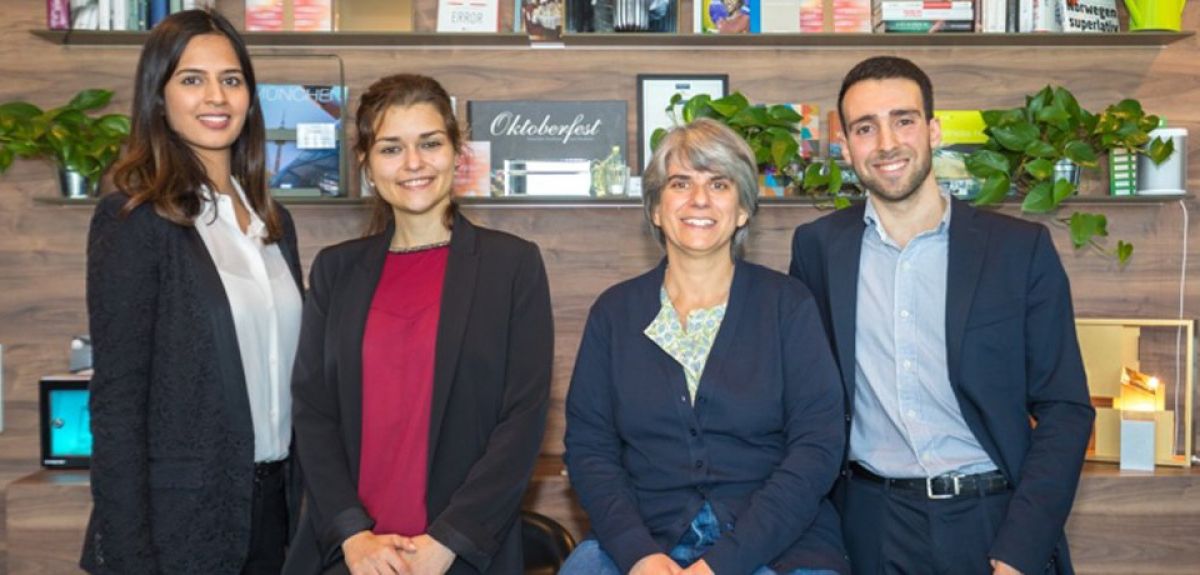
An interview with Oxford alumna Mehak Mumtaz, award-winning female entrepreneur
The University encourages student entrepreneurship at every level, and is keen to provide both support and resources to our students who want to get involved in innovation. One enterprise which has been founded by one of our alumna is Intelligent Lab on Fiber (iLoF): an Oxford-based deeptech on a mission to accelerate drug discovery for currently intractable diseases, like Alzheimer’s Disease.
It's also a female-led business - in July 2020, iLoF received the Global Deeptech prize at Microsoft and Melinda Gates' Female Founders Competition, a global competition for female-led businesses.
We spoke with Mehak Mumtaz, co-founder of iLoF, about the company, her experience, and women in entrepreneurship.
What is iLoF, and how does it work?
iLoF is the world’s first cloud-based intelligent platform for identification of disease biomarkers and biological profiles in a label-free, non-invasive, affordable and portable manner. We create personalised profiles for each patient subtype using a few drops of their blood, and then store the data in our virtual library, which can be equated with a unique fingerprint file. With this data, we can more effectively recruit and stratify patients for clinical studies, fast-tracking the development of accurate, personalised treatments for them.
How did iLoF start?
Tell us a little about yourself, and how you got involved in entrepreneurship.
I’m originally from Pakistan, and I moved to Oxford to study Biochemistry as an undergraduate at St Hilda’s college. I’d always been passionate about understanding the molecular mechanisms behind diseases, and my time at St Hilda’s really deepened that interest. This led to a DPhil in Pathology at the Dunn School, where I was part of a translational biology lab. This was my first introduction t the world of drug discovery.
How did Oxford shape your career in entrepreneurship?
What’s been the best thing about working at iLoF?
My absolute favourite part is being able to work with my team to create cutting-edge technology that is being used to solve real problems in the world – and creating a global difference. Hands-down, that’s my favourite part!
But secondly, what I really love is the sheer breadth of activities and decisions. Every day, and every week, is very different – I could be wearing my science hat and having a conversation with a researcher, or at a different time, interviewing a potential hire, or designing a pitch to be used in client meetings…all in the span of a day. It really keeps me on my toes, 24/7!
Have there been any challenges?
Basically everything has been challenging in some way! It’s really "learning by doing" - from trying to find a clinical need, to internal challenges like hiring people with the right skills, to even personal ones like time management. And it’s constantly evolving too - that’s what makes you grow so exponentially in a start-up.
How has the pandemic changed the way you work?
Is there anything that could be done more to support women in business?
What advice would you give to women considering a career in entrepreneurship?
I’ve thought about this quite a lot in the past few months. One of the things I think women do quite often is focusing too much on getting things perfect, or being the expert on something before we say "yes" to any opportunity. But I think that holds us back - at some point, we have to take the plunge.
Finally, I’d really encourage them to find a mentor. Working directly with someone who has been there, done that, is super helpful - especially if they're only a few years older, they can be helpfully "relatable"! Finding women to support and encourage us, and who can give us wise, unbiased advice, is so important for what can be quite a tough journey on your own.
What’s next?
We're still expanding our team, and we've got some ideas in the pipeline. In the long term, our goal is to be the go-to smart platform for democratising personalised medicine, and helping accelerate drug discovery. The next year or two are going to be key for that in building our technology and brand, and hopefully, we'll already be making a difference helping millions of patients, around the world.
Read the news story about iLoF winning the Global Winners of Deeptech prize on the Microsoft website.
Find out more about iLoF on their website.
Learn about entrepreneurship at the Oxford Foundry.
Read about the RisingWISE programme for female entrepreneurs.
 Expert Comment: Chatbot-driven sexual abuse? The Grok case is just the tip of the iceberg
Expert Comment: Chatbot-driven sexual abuse? The Grok case is just the tip of the iceberg
 New study finds that stopping weight-loss drugs is linked to faster regain than ending diet programmes
New study finds that stopping weight-loss drugs is linked to faster regain than ending diet programmes